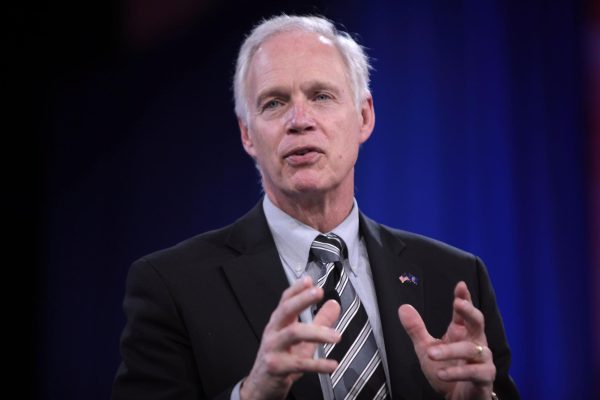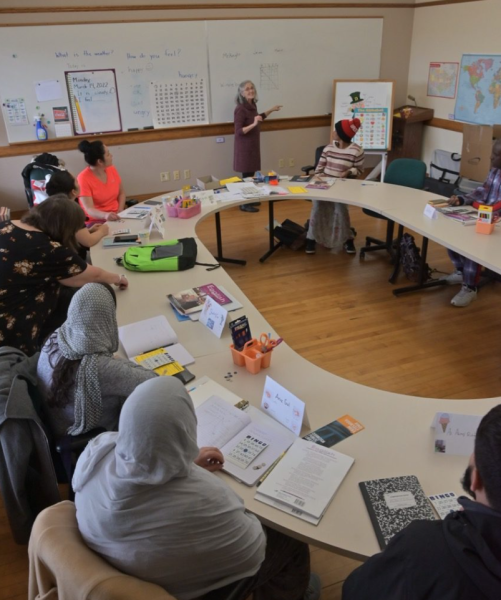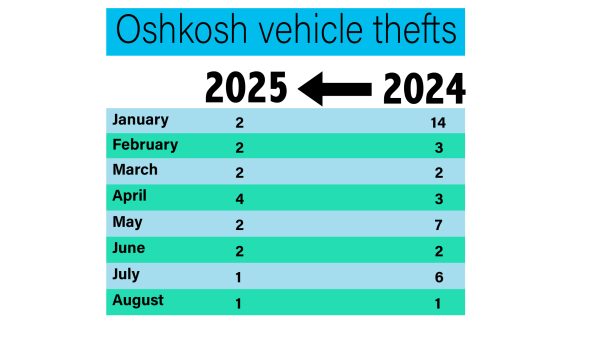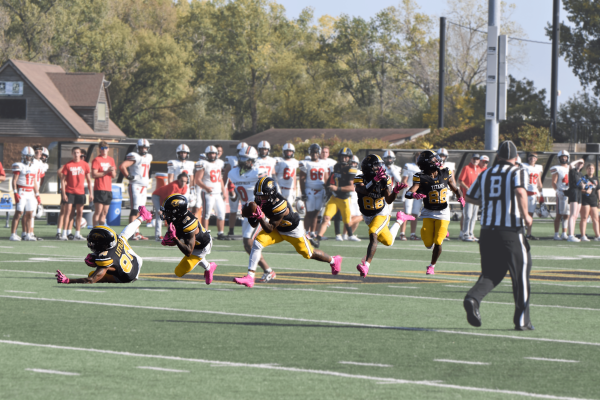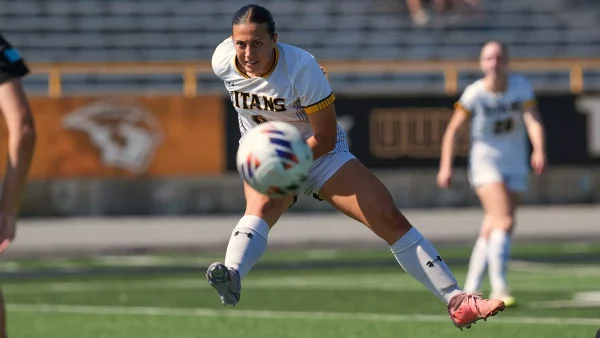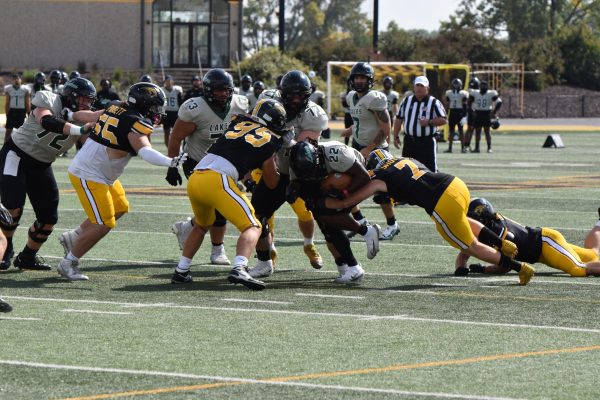Student journalism policy to change in high schools
The Oshkosh Area School Board is reviewing its policy on school-sponsored publications after the Oshkosh North High School newspaper posted an article on its website regarding an assistant principal who suddenly disappeared without any word.
The Policy and Governance Committee met last Thursday to review the policy with advisers from both the Oshkosh North and Oshkosh West student newspapers and others and agreed to meet again on May 21 before proposing any recommendations to the Board of Education.
The story was published on March 4, and less than an hour later, North Star adviser Jason Cummings took it down at the recommendation of his English department chair for fear of potential legal backlash.
Written by Oshkosh North students Brock Doemel and Tess Fitzhenry, the story included observations about the assistant principal having a potential connection to his decision on how to combat vandalization in the boys’ bathrooms.
“As of now, the boy’s bathroom on the first floor by door 1 is closed indefinitely until further notice, along with a few others around the school,” The North Star reported Feb. 15. “Currently, the administration has not disclosed when exactly the bathrooms will reopen …”
Later that same day, Principal Jacquelyn Kiffmeyer sent an email to parents saying the bathrooms were closed due to a “custodial miscommunication” and were reopened once the issue was realized.
Cummings said he and his students had talked about the assistant principal’s absence for a while, so when he noticed the office was cleaned out and painted on March 4, he told his writers to get the story.
Cummings said Doemel took the initiative to start calling around for answers, and found an administrator, who would speak on background only and said that the assistant principal resigned because of the bathroom incident.
Confusion over the school policy really led to the article being removed, Cummings said.
“I was under the assumption that this is an open forum, meaning I can’t really prevent my students from writing anything, but apparently the policy is different and that says that we are a non-public forum, and the district has the right to censor whatever they want,” he said.
The policy, implemented in November 2015, dubs student publications “nonpublic forums” in which their right to speech can be restricted and reviewed to fit educational standards.
UW Oshkosh operates under a different policy, where the Advance-Titan is an independent student newspaper whose policy is that it “is written and edited by students at UWO who are solely responsible for its content and editorial policy.”
Before Cummings published the article, Doemel reassured him that he was sure of his source. Cummings said he agreed to post the story with the understanding that there would be a follow-up article with an official statement from human resources.
“Commonly, with breaking news online you get the story,” Cummings said, “and then you build it as you go, so that was the plan.”
But he also said he decided to publish the article because people had the right to know what was happening, particularly since the assistant principal was a main source for parents who wanted to know about their children’s attendance or discipline issues.
The following day, Kiffmeyer released a statement: “This message is to notify readers of an inaccurate article posted on the Oshkosh North Star online student newspaper. The article did not include credible information or sources and was not approved by the Oshkosh Area School District.”
Doemel said that he stands by what he wrote and that everything he reported on was indeed factual.
“I’m angry that the school district, while keeping staff, students and the community out of the loop on the matter, would call a well-researched article inaccurate without providing any alternate explanation,” Doemel said.
According to Cummings, the district did not offer the North Star a chance to edit their article or to have a conversation about it before they came in and started “intimidating” students.
“They just started coming in and taking pictures of kids’ Chromebooks, and my phone interactions with students, which was all pretty intense,” he said.
Meanwhile, Doemel continued to push for more information. Fitzhenry’s father, who is vice president of news of USA Today Network Wisconsin, suggested the students connect with the Student Press Law Center for guidance. They did, and on March 6, the students requested public records related to the assistant principal’s departure. The district responded on March 12 that it would cost the students $138.83 for the records; however, they also required the students’ reporting notes.
Oshkosh superintendent Vickie Cartwright informed the students on two occasions that they would need to provide the district with their records. The second came a month later after Fitzhenry reached out to ask where they should send their check.
On April 10, a listening session on the district’s media policy was held before the regular Board of Education meeting. UWO journalism professor and Student Press Law Center steering committee member, Vincent Filak was there to show support for the students and the concept of free press.
Filak said that it looked like a student journalist reported on an accurate and important story, only to face administrative overreach and concerning responses to his work. He said it is illegal to put caveats such as requiring reporting notes like this on an open-records request.
“A lot of administrators I’ve run into seem to think they can bully kids or back them into a corner to prevent important stories from being told,” Filak said. “In those institutions, the administration is the king, and no one in the fiefdom can touch them. However, as an outside individual, representing outside organizations, we free press folks can shine a light onto this kind of stuff and let the outside world see what’s going on.”
Five days later, an Oshkosh Area School District press release stated they would not be pursuing disciplinary action for the students, staff or adviser involved, but would be reviewing its policy to ensure it “supports the needs of both students and school communities, as well as journalistic growth and responsibility within the law regarding school newspapers.
“Additionally, District and school leaders regret the student’s perception of intimidation when questioned,” the release said. “The intent was to gain factual information to protect all parties involved.”
On April 16, Doemel responded with his own press release: “The Oshkosh Area School District’s statement indicates a step in the right direction for the future of student journalism within the district, and hopefully the Board of Education will make meaningful policy changes to prevent this situation from happening to future generations of student writers.”
There is also movement to get legislation passed in Wisconsin that would set the stage for the future of high school-level journalism. Matt Smith, a teacher and newspaper adviser at Fond du Lac High School, who also serves on UWO’s Northeastern Wisconsin Scholastic Press Association board, has been pushing to get the legislation passed.
“The goal of New Voices is to have a state law that makes it very clear with what students are allowed to put in their publications,” Smith said. “Ultimately, … the goal is to follow a Tinker Standard, meaning that unless the speech is illegal already, or would significantly disrupt the school learning environment, that it should be allowed.”
Smith said he started working on getting this legislation passed about three years ago after students at his school faced similar problems in 2014 when publishing a story on rape culture and rape jokes.
Smith said that if this legislation were passed, situations like the one at Oshkosh North would be avoided.
“Stuff that’s illegal or harmful to the school still wouldn’t be published,” he said. “It doesn’t say anything goes, but a school district can’t just not like something and tell students not to publish it.”
The next step in getting the legislation passed is bringing it forward to a committee to begin discussions about bringing it for a vote. However, finding legislators who are not only supportive of it, but are also passionate enough to put in the manpower to push the legislation into law, is the difficult part.
“That’s kind of where we’re stuck,” Smith said. “It takes a lot of work to get anything all the way in to becoming a law, and we haven’t found someone to take it up as their cause.”
Doemel said he feels as though the district only backed down from their threats after the story received significant media attention.
“I feel strongly that the district initially handled this case as poorly as it possibly could, threatening our staff adviser with disciplinary action and planning to implement administrative review for all future articles,” Doemel said. “My story was important to publish because if a school suddenly makes a high-profile figure in our building disappear, the members of that school community and the taxpayers who pay his salary deserve the truth.”
Filak said although the beginning of the investigation could have been handled better, the district made the right call to move forward fixing it.
“The Oshkosh school district handled this situation both faster and better than any other district I’ve ever seen,” Filak said. “Obviously, it would have been better if it hadn’t happened in the first place, but once it did, the district took a look around and made the right call to move toward fixing it. That speaks volumes about the administration and the board.”



